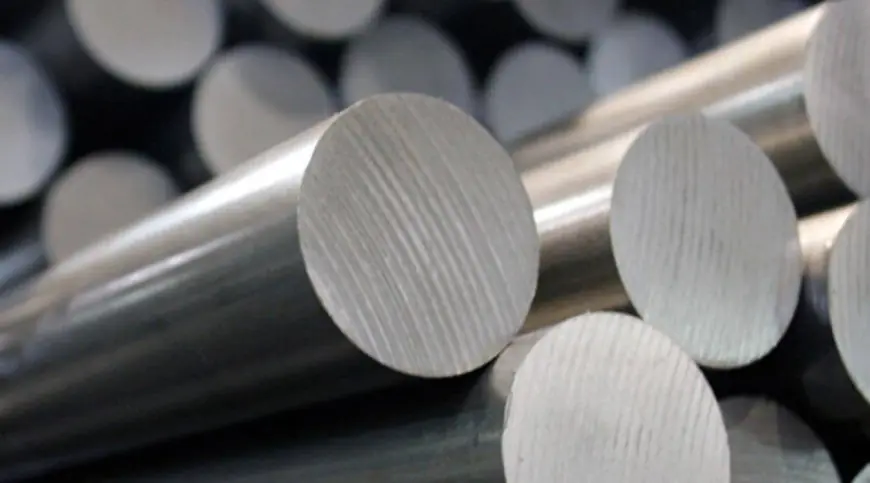Stainless Steel Round Bar: Properties, Applications, and Benefits
xplore the properties, types, applications, and benefits of stainless steel round bar. Learn why it is the preferred choice across industries for strength and durability.

Stainless steel round bars are among the most widely used metallic products across industries. Their excellent combination of strength, durability, and resistance to corrosion makes them an essential component in construction, manufacturing, automotive, and other industrial applications. Whether in the form of reinforcement in structures, shafts in machinery, or decorative elements in architecture, stainless steel round bars deliver consistent performance and reliability.
This blog provides a detailed guide to stainless steel round bars, including their properties, types, manufacturing process, benefits, and common applications.
What is a Stainless Steel Round Bar?
A stainless steel round bar is a cylindrical, solid piece of stainless steel that comes in various diameters and lengths. It is produced through hot rolling, cold rolling, or forging processes, depending on the required application. These bars exhibit excellent corrosion resistance, heat resistance, and mechanical strength, making them suitable for heavy-duty as well as precision-based uses.
Key Properties of Stainless Steel Round Bar
-
Corrosion Resistance:
Stainless steel round bars resist rusting, scaling, and corrosion, even in harsh environments like marine or chemical industries. -
High Strength:
They maintain structural integrity under heavy loads and extreme conditions. -
Heat Resistance:
Suitable for high-temperature applications, these bars do not lose mechanical properties under thermal stress. -
Hygiene:
Stainless steel has a smooth, non-porous surface that resists bacterial growth, making it ideal for food processing and medical equipment. -
Aesthetic Appeal:
The polished finish of SS round bars makes them a preferred choice for architectural and decorative applications.
Types of Stainless Steel Round Bar
Stainless steel round bars are classified based on their grades, each designed to perform in specific conditions.
-
304 Stainless Steel Round Bar
-
Most widely used grade
-
Excellent corrosion resistance and machinability
-
Common in food, chemical, and architectural industries
-
-
316 Stainless Steel Round Bar
-
Contains molybdenum for enhanced corrosion resistance
-
Ideal for marine and chemical environments
-
Stronger resistance against chlorides
-
-
410 Stainless Steel Round Bar
-
High strength and hardness
-
Used in cutlery, fasteners, and industrial machinery
-
-
431 Stainless Steel Round Bar
-
Excellent toughness and strength
-
Used in aerospace and automotive components
-
-
17-4 PH Stainless Steel Round Bar
-
Precipitation-hardened stainless steel
-
Provides high strength and corrosion resistance
-
Common in aerospace, petrochemical, and nuclear industries
-
Manufacturing Process of Stainless Steel Round Bar
The production of SS round bars involves several precise steps to ensure quality and strength:
-
Melting and Casting:
Raw materials like iron ore, chromium, and nickel are melted in a furnace and cast into billets. -
Hot Rolling or Forging:
Billets are heated and rolled or forged into cylindrical shapes. -
Heat Treatment:
Improves hardness, strength, and corrosion resistance. -
Cold Working (Optional):
Bars may undergo cold finishing to improve dimensional accuracy and surface finish. -
Testing and Inspection:
Non-destructive testing ensures the final product meets mechanical and chemical standards. -
Cutting and Finishing:
Bars are cut into standard or custom lengths and polished for a smooth finish.
Applications of Stainless Steel Round Bar
Stainless steel round bars are versatile and widely used across sectors:
-
Construction Industry:
Used as reinforcement bars, structural supports, and decorative elements. -
Automotive Industry:
Applied in shafts, axles, and fasteners for their strength and durability. -
Machinery and Equipment:
Used in manufacturing shafts, gears, and other machine components. -
Marine Industry:
Due to high corrosion resistance, they are used in shipbuilding, propeller shafts, and marine hardware. -
Oil and Gas Industry:
Essential in pipelines, valves, and drilling equipment due to resistance against harsh chemicals. -
Aerospace Industry:
Provides strength-to-weight advantage for critical aircraft components. -
Food and Beverage Industry:
Preferred for hygienic equipment, processing plants, and storage tanks. -
Medical Applications:
Used in surgical instruments, implants, and hospital equipment due to biocompatibility.
Benefits of Using Stainless Steel Round Bar
-
Long Service Life:
High durability ensures long-term cost savings. -
Low Maintenance:
Requires minimal upkeep compared to other metals. -
Sustainability:
Stainless steel is 100% recyclable, making it an eco-friendly choice. -
Versatility:
Available in multiple grades and finishes for different industries. -
Enhanced Safety:
Corrosion resistance reduces the risk of material failure in critical applications. -
Precision:
Offers dimensional accuracy, essential in machinery and engineering.
Choosing the Right Stainless Steel Round Bar
When selecting stainless steel round bars, consider:
-
Grade Selection: Based on corrosion resistance and strength required.
-
Size and Tolerance: Diameter and length should match project specifications.
-
Surface Finish: Polished bars for decorative use; rough finish for industrial applications.
-
Application Environment: Marine, chemical, or structural conditions influence the choice of grade.
Global Market Demand for Stainless Steel Round Bars
The demand for stainless steel round bars continues to rise globally. Industries such as construction, oil and gas, automotive, and aerospace are expanding, which directly fuels the need for high-performance SS round bars. Additionally, sustainability and recyclability make stainless steel a preferred material in modern industries.
Conclusion
Stainless steel round bars are a vital component in almost every sector, thanks to their superior mechanical properties, corrosion resistance, and versatility. Whether in infrastructure projects, heavy machinery, or precision medical equipment, these bars ensure performance, durability, and safety.
What's Your Reaction?
 Like
0
Like
0
 Dislike
0
Dislike
0
 Love
0
Love
0
 Funny
0
Funny
0
 Angry
0
Angry
0
 Sad
0
Sad
0
 Wow
0
Wow
0


















































